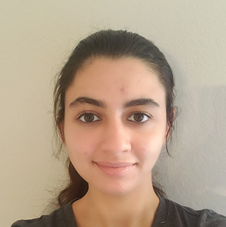Team
The team members that make things happen
Faculty

Ph.D. Students
Kimia Tasnia
I am Kimia, a PhD student in Computer Engineering at the University of Central Florida, under the advising of Dr. Sazadur Rahman at the Cyber Security and Privacy Cluster Center. My research interests lie in the realm of microelectronic supply chain security and EDA platform security and development, especially as they pertain to socially impactful sectors such as health, military, and sustainable development. Before joining UCF, I completed my undergraduate studies in Electrical and Electronic Engineering at Bangladesh University of Engineering and Technology. Subsequently, I gained professional experience as a Digital Design Verification Engineer at Neural Semiconductor Ltd. and Synapse Design Automation Inc. Being an DV Engineer, I worked on a number of projects involving my skill set in on-chip protocols, scripting, simulation and debugging. Beyond my academic and professional pursuits, I am an avid traveler who enjoys exploring naturally beautiful destinations and trying different cuisines. Additionally, I actively engage with social communities as part of my larger commitment to social responsibility and awareness.

Ishraq Tashdid
Ishraq is a highly motivated and industry-experienced graduate student in the department of ECE at the University of Central Florida, working under the supervision of Dr. Sazadur Rahman. With a strong focus on Hardware Security, EDA Automation, and Secure Architecture Development, his research work is aimed at addressing the growing challenges of protecting electronic systems from cyberattacks. Prior to joining UCF, Ishraq worked extensively on the design and verification of a RISC-V based processor, primarily on its Floating Point Core, for a Irvine, CA start-up. Along with being the Team Lead for the Design and Verification Team, he gained invaluable hands-on experience by working with industry-maintained on-chip protocols, such as AXI, AHB, and AMBA and verification methodologies such as UVM, and COCOTB for python. He was also the moderator for the IC Package Design Team at his company and has played an integral role in the hiring and grooming up process. Ishraq is passionate about using his skills and knowledge to make a positive impact on the world and is eager to collaborate with other researchers and industry partners to develop new solutions against ML-based and Oracle-based adversaries.
You can find two of his recent blog posts here:
1) APB-to-AXI Bus Bridge
2) AXI-memory Conroller

Undergraduate Students
Mariam Rabadi
Mariam Rabadi is a student at the University of Central Florida pursuing her bachelor’s degree in Electrical Engineering-Comprehensive Track and is currently in the university’s Accelerated Bachelor’s-to-Master’s Program as she plans to pursue a master’s degree in Electrical Engineering. She is also part of the university honors program in the Burnett Honors College. During her time at UCF, she conducted research in a computer engineering lab specialized in neural networks and computer architecture, and currently conducts research in fully homomorphic encryption (FHE) via an AMD fellowship and works as an Undergraduate Teaching Assistant (UTA). As a UTA, she assists the Linear Circuits professors with grading materials such as exams and quizzes. As part of her current research, she focuses on acceleration algorithms for Number Theoretic Transforms (NTT) and their implementation through code and in hardware using ASIP designer. Mariam aspires to contribute to the advancement of technology and security through the development of robust and efficient hardware systems with a focus on secure computing.

John Gierlach
John Gierlach is a Computer Engineering bachelor’s student who is focusing on the field of digital VLSI design at the University of Central Florida (UCF). He plans to continue his education at UCF by getting an MS in computer engineering. During his time at UCF, he led the IEEE UCF student branch as its president, conducted research around the idea of hardware security of high-bandwidth memory and fully homomorphic encryption (FHE) via an AMD fellowship, and had two internships at AMD and Georgia Technology Research Institute (GTRI). Specifically during his research, he is working with Synopsys tools such as Verdi and ASIP Design to design a specific hardware architecture that can perform FHE algorithms quickly and efficiently. In addition, John also conducted research on a U280 FPGA to analyze the effects of row-hammering on HBM to see if any data lines were manipulated by writing custom RTL code. Currently at GTRI, John is a software engineer intern who assists with developing applications and simulations for the United States Air Force. During his time at AMD, he was a silicon design engineer intern with the task of modifying the RTL of the RDNA architecture to improve the performance of the overall GPU pipeline. When John was a part of the IEEE UCF student chapter, he was a member, project chair, and president, during all these roles he designed projects and workshops for other members to learn valuable skills and brought industry representatives to the student organization to allow for more students to get opportunities for internships or fellowships. John’s goal is to design resilient, robust, and innovative hardware that enables engineers and scientists to maximize their efforts for building a better world for all.
